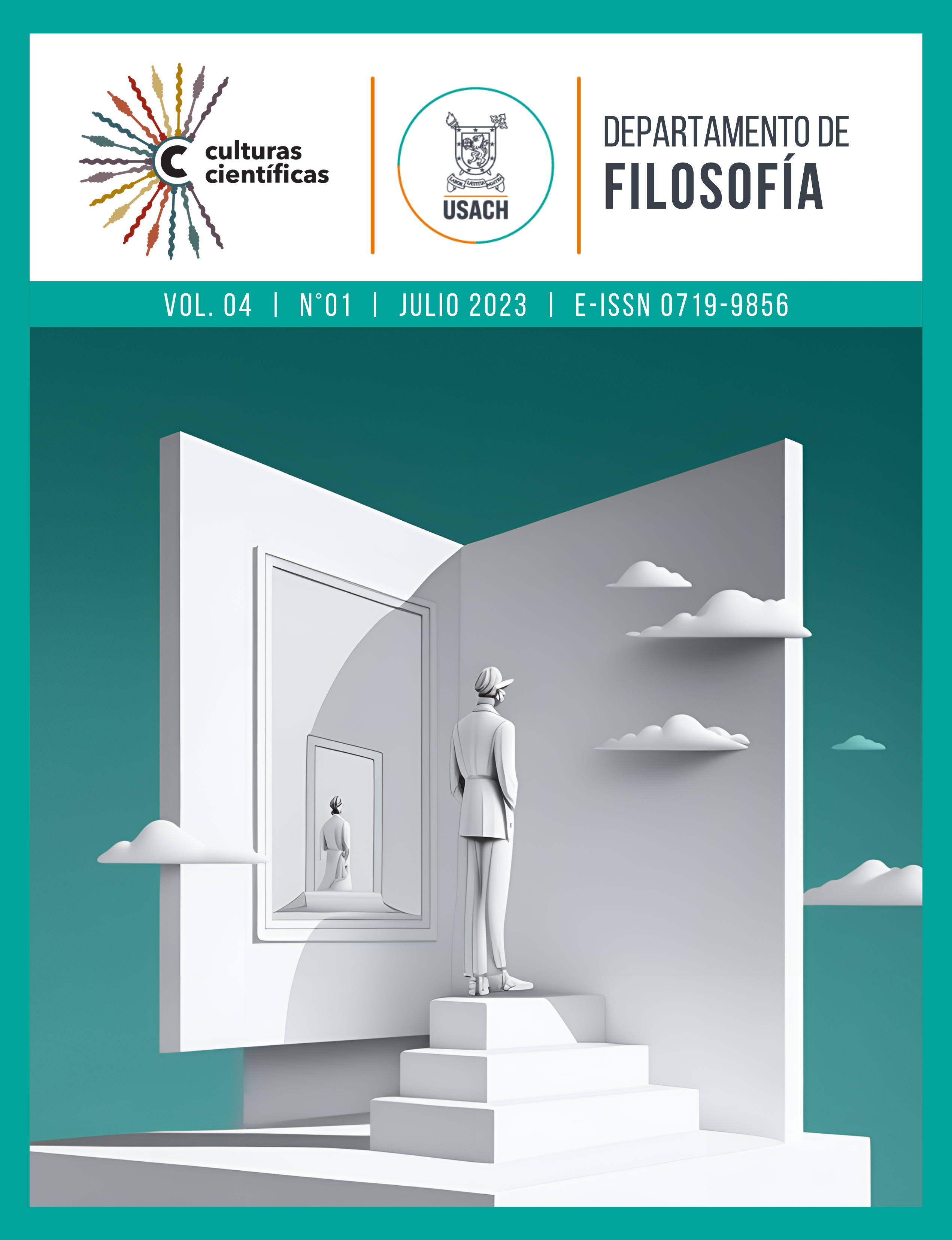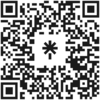Una ontología modal de relaciones para la mecánica cuántica
DOI:
https://doi.org/10.35588/cc.v4i1.6151Palabras clave:
Entrelazamiento cuántico, Holismo cuántico, Monismo de prioridad, Ontología de propiedades, Realismo estructural moderado, Realismo estructural ónticoResumen
En correspondencia con las interpretaciones modales de la mecánica cuántica, Lombardi y Castagnino (2008) y da Costa, Lombardi y Lastiri (2013) han propuesto para dicha teoría una ontología de haces de propiedades posibles intrínsecas, centrada principalmente en las cuestiones de la contextualidad e indistinguibilidad cuánticas. En correspondencia con la interpretación conocida como “mecánica cuántica relacional” (Rovelli, 1996), se han propuesto dos ontologías basadas en relaciones. Laura Candiotto (2017) aboga por una metafísica de relaciones radical, considerada por la autora como una instancia del llamado “realismo estructural óntico”. Alternativamente, Andrea Oldofredi (2021) propone una ontología de haces de relaciones, considerada por el autor como una instancia del llamado “realismo estructural moderado”. Desde la década de 1980, el tema del entrelazamiento cuántico ha llevado a varios autores (Teller, Healey, Howard, Esfeld) a defender que la mecánica cuántica comporta una forma de holismo. Se ha defendido que el holismo de la mecánica cuántica da apoyo a la tesis metafísica conocida como “monismo de prioridad” (Schaffer, 2010a). En este artículo, se propone una ontología de la mecánica cuántica en la que las propiedades de los sistemas cuánticos revisten a la vez carácter modal y relacional. Como resultado, se obtiene una ontología de la mecánica cuántica holista que resulta una instancia del monismo de prioridad y del realismo estructural moderado.
Descargas
Referencias
Bene, G. y Dieks, D. (2002). A perspectival version of the modal interpretation of quantum mechanics and the origin of macroscopic behavior. Foundations of Physics, 32: 645-671. https://doi.org/10.1023/A:1016014008418
Calosi, C. (2022). Quantum modal indeterminacy. Studies in History and Philosophy of Science 95, 177-184. https://doi.org/10.1016/j.shpsa.2022.08.012
Candiotto, L. (2017). The reality of relations. Giornale di Metafisica, vol 2/2017, pp. 537-551. http://philsci-archive.pitt.edu/id/eprint/14165
da Costa, N. y Lombardi, O. (2014), Quantum mechanics: Ontology without individuals. Foundations of Physics, 44: 1246-1257. https://doi.org/10.1007/s10701-014-9793-1
da Costa, N., Lombardi, O. y Lastiri, M. (2013). A modal ontology of properties for quantum mechanics, Synthese, 190: 3671–3693. https://doi.org/10.1007/s11229-012-0218-4
Dieks, D. (1988). The formalism of quantum theory: an objective description of reality? Annalen der Physik, 7: 174–190. https://doi.org/10.1002/andp.19885000304
Dieks, D. (1989). Resolution of the measurement problem through decoherence of the quantum state. Physics Letters A, 142: 439-446. https://doi.org/10.1016/0375-9601(89)90510-0
Dieks, D. (2021). Modal interpretations of quantum mechanics. En: Freire, O. (ed.), Oxford Handbook of the History of Interpretations of Quantum Mechanics, Oxford: Oxford University Press, Cap. 47. https://doi.org/10.1093/oxfordhb/9780198844495.013.0048
Earman, J. (2015). Some Puzzles and Unresolved Issues About Quantum Entanglement. Erkenntnis 80, 303–337. https://doi.org/10.1007/s10670-014-9627-8
Einstein, A., Podolsky, B., y Rosen, N. (1935). Can quantum-mechanical description of physical reality be considered complete? Physical Review, 47: 777–780. https://doi.org/10.1103/PhysRev.47.777
Esfeld, M. (2001). The Meaning of Quantum Holism. En: Holism in Philosophy of Mind and Philosophy of Physics. Synthese Library, vol 298. Springer, Dordrecht. https://doi.org/10.1007/978-94-017-1787-8_8
Esfeld, M. (2004). Quantum Entanglement and a Metaphysics of Relations, Studies in History and Philosophy of Modern Physics, 35: 601–17. https://doi.org/10.1016/j.shpsb.2004.04.008
Esfeld, M. (2017). A proposal for a minimalist ontology. Synthese 197: 1889–1905. https://doi.org/10.1007/s11229-017-1426-8
Esfeld, M. y Lam, V. (2010). Ontic Structural Realism as a Metaphysics of Objects. En: Bokulich, A., Bokulich, P. (eds.) Scientific Structuralism. Boston Studies in the Philosophy and History of Science, vol. 281. Springer, Dordrecht, pp. 143-159. https://doi.org/10.1007/978-90-481-9597-8_8
French, S. y Krause, D. (2006), Identity in Physics: A Formal, Historical and Philosophical Approach, Oxford: Oxford University Press. https://doi.org/10.1093/0199278245.001.0001
Grupp, J. (2004). Compresence Is A Bundle: A Problem For The Bundle Theory Of Objects. Metaphysica 5 (2):63-72.
Howard, D. (1989). Holism, Separability, and the Metaphysical Implications of the Bell Experiments. En: Cushing, J. T. y McMullin, E. (eds.). Philosophical Consequences of Quantum Theory. University of Notre Dame Press, pp. 224-253. https://undpress.nd.edu/9780268015794/philosophical-consequences-of-quantum-theory/
Kochen, S. (1985), A new interpretation of quantum mechanics. En: Lahti, P. J. and Mittelsteadt, P. (eds.). Symposium on the Foundations of Modern Physics. Singapore: World Scientific, pp. 151-169. https://doi.org/10.1142/9789814542098
Kochen, S. y Specker, E. (1967), The problem of hidden variables in quantum mechanics. Journal of Mathematics and Mechanics 17: 59-87. http://dx.doi.org/10.1512/iumj.1968.17.17004
Ladyman, J. (2020), Structural Realism. En: Zalta, E. N. (ed.). The Stanford Encyclopedia of Philosophy (Winter 2020 Edition). https://plato.stanford.edu/archives/win2020/entries/structural-realism/
Ladyman, J., Ross, D., Spurrett, D. y Collier, J. (2007). Every Thing Must Go: Metaphysics Naturalized. Oxford University Press, Oxford. https://doi.org/10.1093/acprof:oso/9780199276196.001.0001
Laudisa, F. y Rovelli, C. (2021). Relational Quantum Mechanics. En: Zalta, E. N. (ed.). The Stanford Encyclopedia of Philosophy (Winter 2021 Edition). https://plato.stanford.edu/archives/win2021/entries/qm-relational/
Lombardi, O. (2023). Not individuals, nor even objects: On the ontological nature of quantum systems. En: Becker Arenhart, J. R. y Wohnrath Arroyo, R. (Eds.) Non-Reflexive Logics, Non-Individuals, and the Philosophy of Quantum Mechanics. Springer Synthese Library. pp.47-62. https://link.springer.com/book/9783031318399
Lombardi, O. y Castagnino, M. (2008), A modal-Hamiltonian interpretation of quantum mechanics. Studies in History and Philosophy of Modern Physics 39: 380-443. https://doi.org/10.1016/j.shpsb.2008.01.003
Marletto, C. y Vedral, V. (2017). Evolution without evolution and without ambiguities. Physical Review D 95: 043510. https://doi.org/10.1103/PhysRevD.95.043510
Mermin, N. D. (1998). What is quantum mechanics trying to tell us? American Journal of Physics 66, 753–767. https://doi.org/10.1119/1.18955
Muller, F. A. (2011) Withering away, weakly. Synthese 180, 223–233. https://doi.org/10.1007/s11229-009-9609-6
Muller, F. A. y Saunders, S. (2008). Discerning Fermions. The British Journal for the Philosophy of Science 59 (3): 499-548. http://dx.doi.org/10.1093/bjps/axn027
Oldofredi, A. (2021). The Bundle Theory Approach to Relational Quantum Mechanics. Foundations of Physics 51 (1):1-22. https://doi.org/10.1007/s10701-021-00407-2
Page D. N. y Wootters W. K. (1983). Evolution without evolution: Dynamics described by stationary observables. Physical Review D 27: 2885. https://doi.org/10.1103/PhysRevD.27.2885
Paul, L (2017). A One Category Ontology. En: Keller, J. (ed.) Being, Freedom and Method. Themes from the Philosophy of Peter van Inwagen. Oxford University Press, Oxford. Pp. 32-61. https://doi.org/10.1093/acprof:oso/9780198715702.003.0003
Rovelli, C. (1996). Relational quantum mechanics. Int. J. Theor. Phys. 35(8): 1637–1678. https://doi.org/10.1007/BF02302261
Schaffer, J. (2010a). Monism: The Priority of the Whole. Philosophical Review 119: 31–76. https://doi.org/10.1215/00318108-2009-025
Schaffer, J. (2010b). The Internal Relatedness of All Things. Mind, Volume 119, Issue 474, April 2010, Pages 341–376, https://doi.org/10.1093/mind/fzq033.
Schaffer, J. (2018). Monism. En: Zalta, E. N. (ed.) The Stanford Encyclopedia of Philosophy (Winter 2018 Edition). https://plato.stanford.edu/archives/win2018/entries/monism
Shiver, A. (2014). Mereological bundle theory and the identity of indiscernibles. Synthese 191, 901–913. https://doi.org/10.1007/s11229-013-0298-9
Teller, P. (1986). Relational holism and quantum mechanics. British Journal for the Philosophy of Science 37, 71–81. https://www.journals.uchicago.edu/doi/10.1093/oxfordjournals.bjps/37.1.71
Vermaas, P. (1998). The pros and cons of the Kochen–Dieks and the atomic modal interpretation. En: Dieks, D. y Veermas, P. (eds.). The modal interpretation of quantum mechanics. Dordrecht: Kluwer: pp. 103–148. https://doi.org/10.1007/978-94-011-5084-2_5
Vermaas, P. and Dieks, D. (1995). The modal interpretation of quantum mechanics and its generalization to density operators. Foundations of Physics 25: 145-158. https://doi.org/10.1007/BF02054662











